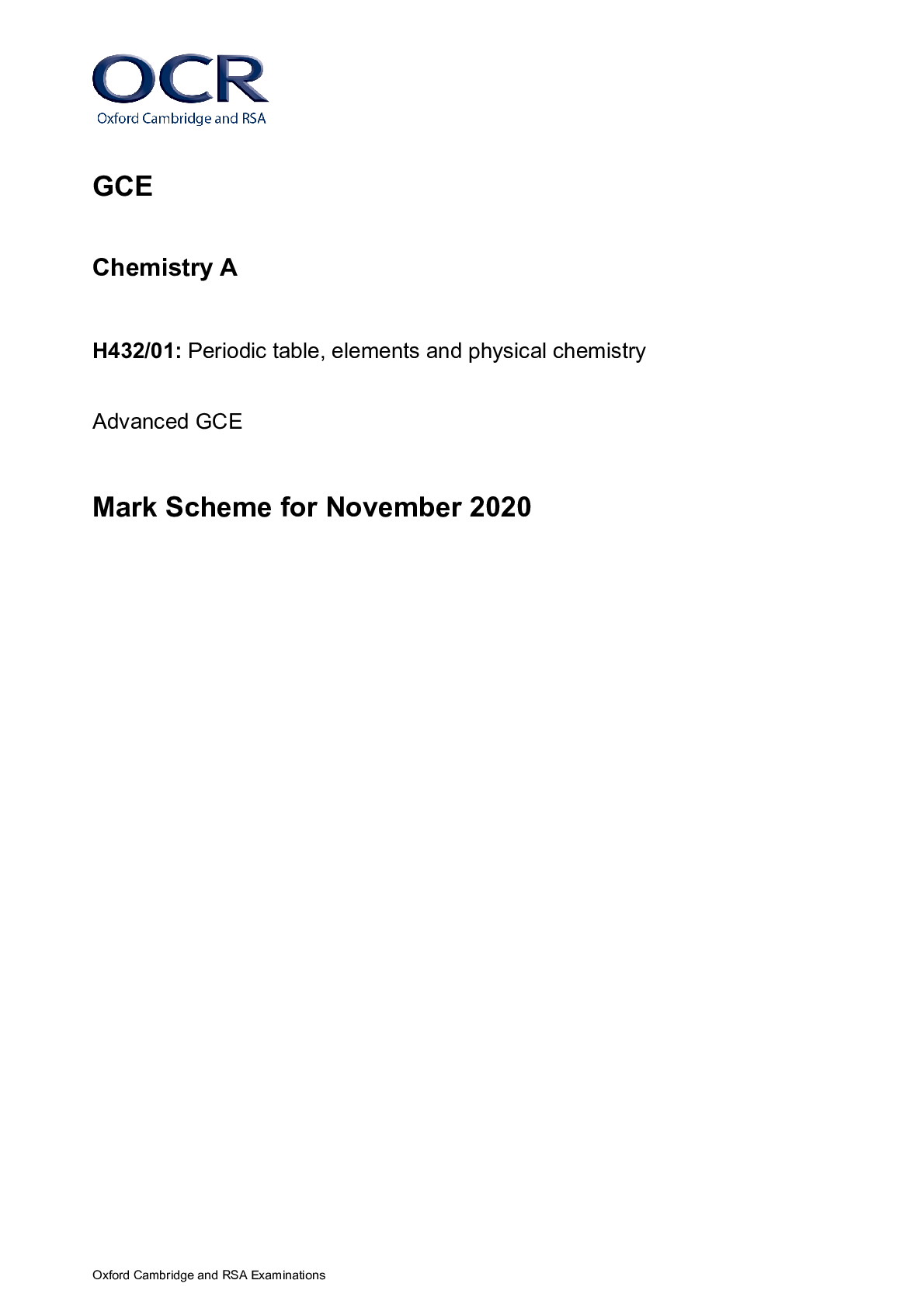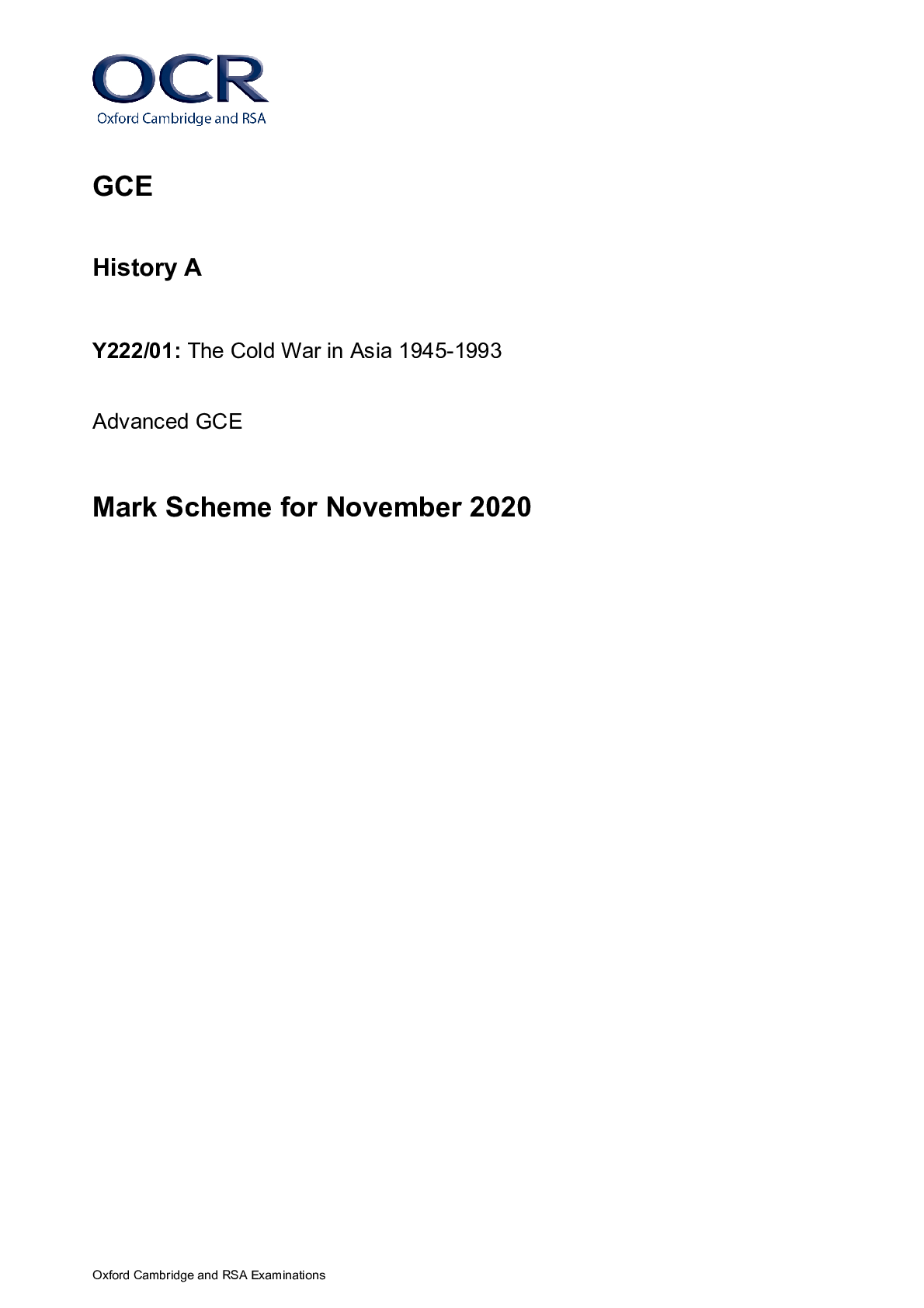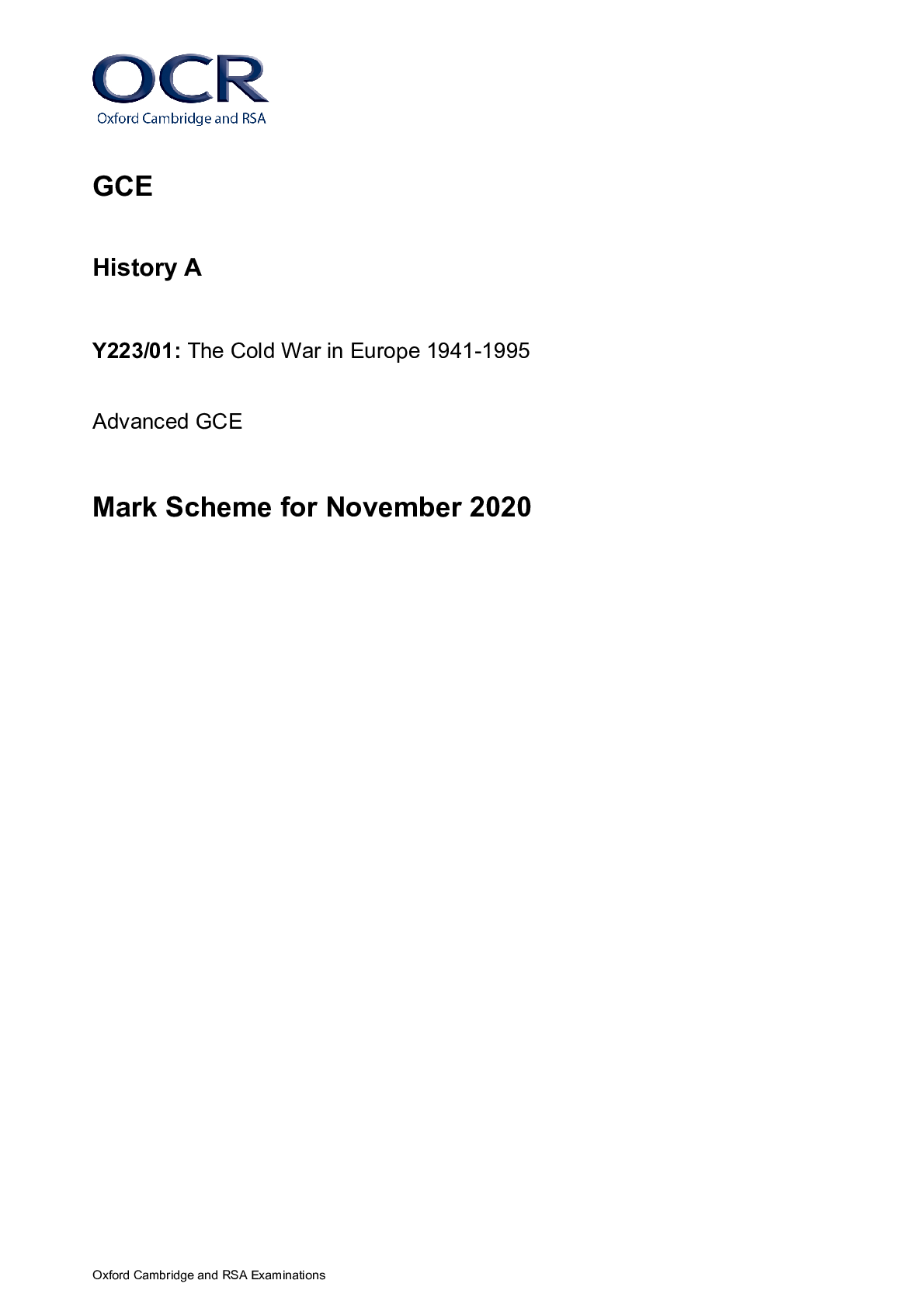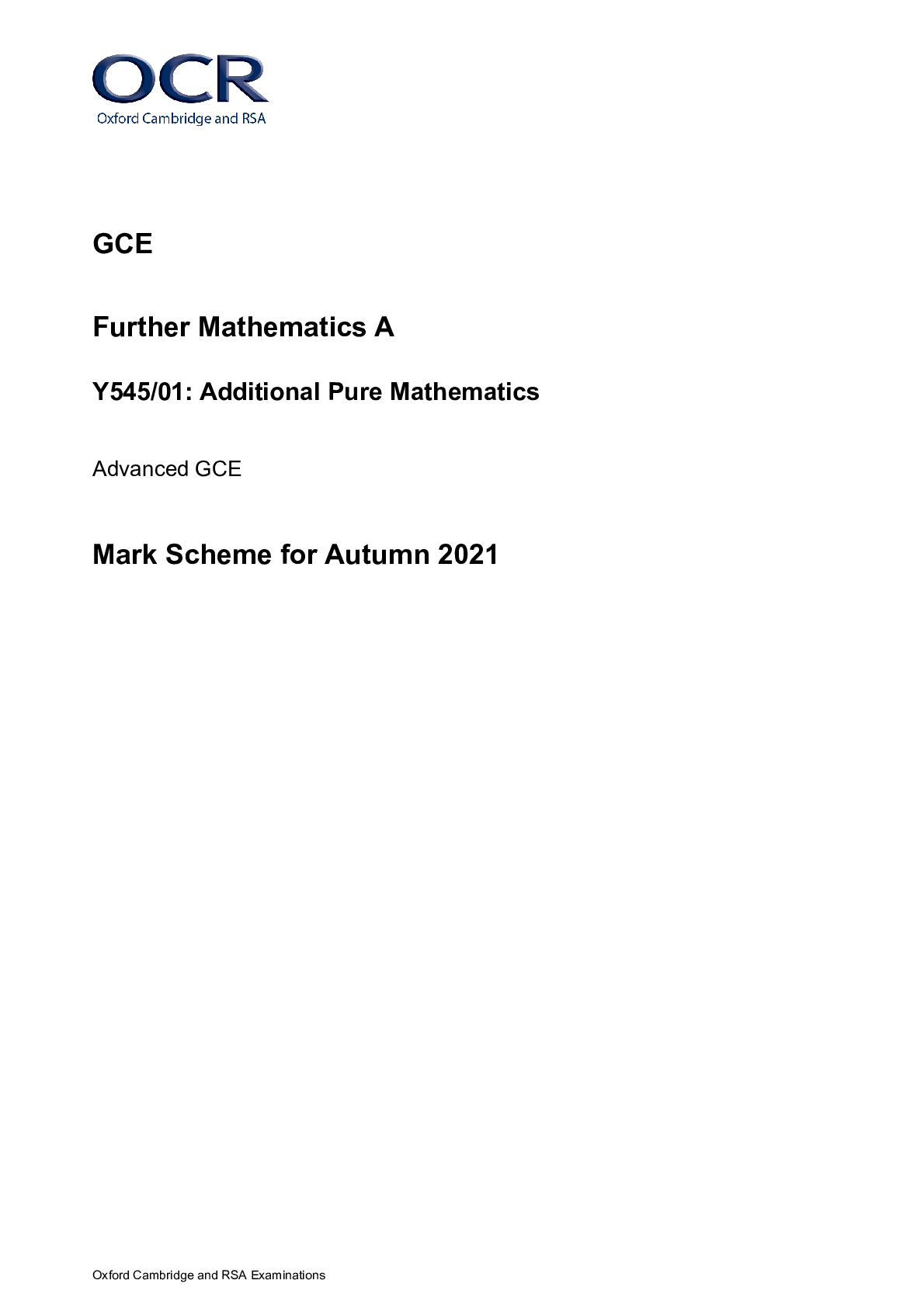History > AS Mark Scheme > GCE History A Y207/01: The German reformation and the rule of Charles V 1500-1559 Advanced GCE Mark (All)
GCE History A Y207/01: The German reformation and the rule of Charles V 1500-1559 Advanced GCE Mark Scheme for November 2020
Document Content and Description Below
Oxford Cambridge and RSA Examinations GCE History A Y207/01: The German reformation and the rule of Charles V 1500-1559 Advanced GCE Mark Scheme for November 2020Oxford Cambridge and RSA Examinat... ions OCR (Oxford Cambridge and RSA) is a leading UK awarding body, providing a wide range of qualifications to meet the needs of candidates of all ages and abilities. OCR qualifications include AS/A Levels, Diplomas, GCSEs, Cambridge Nationals, Cambridge Technicals, Functional Skills, Key Skills, Entry Level qualifications, NVQs and vocational qualifications in areas such as IT, business, languages, teaching/training, administration and secretarial skills. It is also responsible for developing new specifications to meet national requirements and the needs of students and teachers. OCR is a not-for-profit organisation; any surplus made is invested back into the establishment to help towards the development of qualifications and support, which keep pace with the changing needs of today’s society. This mark scheme is published as an aid to teachers and students, to indicate the requirements of the examination. It shows the basis on which marks were awarded by examiners. It does not indicate the details of the discussions which took place at an examiners’ meeting before marking commenced. All examiners are instructed that alternative correct answers and unexpected approaches in candidates’ scripts must be given marks that fairly reflect the relevant knowledge and skills demonstrated. Mark schemes should be read in conjunction with the published question papers and the report on the examination. © OCR 2020Y207/01 Mark Scheme November 2020 2 Annotations Annotation Meaning of annotation Blank Page Highlight Off-page comment Assertion Analysis Evaluation Explanation Factor Illustrates/Describes Irrelevant, a significant amount of material that does not answer the question Judgement Knowledge and understanding Provenance Simple comment Unclear ViewY207/01 Mark Scheme November 2020 3 Subject Specific Marking Instructions Question Answer/Indicative content Mark Guidance 1 (a) Which of the following was a more significant factor enabling Ottoman expansion in the Balkans and the Mediterranean during the reign of Charles V? i. The strengths of the Ottomans ii. The weakness of Charles V • In dealing with Ottoman strengths answers might consider their naval superiority in explaining their expansion in the Mediterranean. • Answers might consider the importance of alliances, for example with Barbarossa or with France. • Answers might consider their military strength on land in explaining their strength in Eastern Europe. • In dealing with weaknesses of Charles V answers might consider Charles’ financial difficulties. • Answers might consider issues of strategic overstretch across the empire which prevented Charles from concentrating on the Ottoman threat. • Answers might consider the weaknesses of Ferdinand and the situation in Hungary. 10 • No set answer is expected • Judgement must be supported by relevant and accurate material. • Only credit material relevant to reasons for Ottoman expansion. • Answers may deal with each factor in turn, then compare them to reach a judgement, or make take a continually comparative approach. Either approach is acceptable. • Knowledge must not be credited in isolation, it should only be credited where it is used as the basis for analysis and evaluation, in line with descriptions in the levels marks scheme. 1 (b)* ‘Luther had lost control of the Reformation in Germany by 1529.’ How far do you agree? In arguing that Luther lost control, answers might consider: • The very rapid spread of Lutheran ideas through popular print and word of mouth. • The adoption of Protestantism by German Princes and their use of it for personal advantage. • The Peasants’ War. 20 • No set answer is expected. • At higher levels candidates will focus on ‘how far’, but at Level 4 may simply list the reasons. • At Level 5 and above there will be judgement as to the relative extent. • At higher levels candidates might establish criteria against which to judge. • To be valid judgements, claims must be supported by relevant and accurate material. If not, they are assertions.Y207/01 Mark Scheme November 2020 4 • The Knights’ War. • The development of more radical Protestant ideas such as Anabaptism. • The varied reasons for adoption of, and interpretation of, Lutheranism in different areas across Germany. • The absence of Luther from key moments such as the Augsburg Diet of 1530 and its resulting Augsburg Confession. In arguing that Luther did not lose control, answers might consider: • The significance of Luther as the key source of the ideas and emerging doctrine of Protestantism. • The importance of the printing press and followers of Luther in spreading his ideas across Germany, including his translation of the Bible. • Luther’s proactive attempts to provide leadership on issues like the authority of princes, religious practice and social behaviours as these issues emerged. • The willingness of Luther and his followers to proactively challenge radicalisation of Protestantism. • The loyalty of Luther’s supporters to him during this era e.g. Melanchthon. • The centrality of Luther to most attempts at compromise and their outcomes. • The centrality of Luther both to the efforts of Charles V and the Papacy to stop the spread of the new ideas, and the efforts of supporters of the new ideas • Knowledge must not be credited in isolation, it should only be credited where it is used as the basis for analysis and evaluation, in line with descriptions in the levels mark scheme.Y207/01 Mark Scheme November 2020 5 to defend them. 2 (a) Which of the following was a more significant threat to the survival of Lutheranism in the years 1517 to 1529? i. The actions of the Papacy ii. The actions of Charles V Explain your answer with reference to both (i) and (ii). • In dealing with the Papacy answers might consider the threats made by the Papacy against Luther, culminating in the significant act of Papal excommunication. • Answers might consider the importance of the debates with Eck. • Answers might consider the extent of, and limitations to, Papal influence in Germany. • In dealing with Charles V answers might consider the importance of the Diet of Worms and the verdict of heresy, which turned Luther into an outlaw. • Answers might consider the Emperor’s order to burn Luther’s writings and renounce his ideas. • Answers might consider the limitations to Charles’ power in Germany. 10 • No set answer is expected • Judgement must be supported by relevant and accurate material. • Only credit material relevant to threats to the survival of Lutheranism. • Answers may deal with each factor in turn, then compare them to reach a judgement, or make take a continually comparative approach. Either approach is acceptable. • Knowledge must not be credited in isolation, it should only be credited where it is used as the basis for analysis and evaluation, in line with descriptions in the levels marks scheme. 2. (b)* ‘Charles V’s problems outside Germany were the main reason why he accepted the Peace of Augsburg in 1555.’ How far do you agree? In arguing that Charles V’s problems elsewhere were the main reason, answers might consider: • Charles’ wars with France, which were seen as the priority, and resulted in concessions being made in Germany to acquire support and resources. • The problem of the Turks, particularly in the earlier part of this period. 20 • No set answer is expected. • At higher levels candidates will focus on ‘assess’, but at Level 4 may simply list the reasons. • At Level 5 and above there will be judgement as to the relative significance of reasons. • At higher levels candidates might establish criteria against which to judge. • To be valid judgements, claims must be supported by relevant and accurate material. If not, they are assertions. • Knowledge must not be credited in isolation, it shouldY207/01 Mark Scheme November 2020 6 • Charles’ financial problems. In arguing that other reasons were more important, answers might consider: • The shift in the political balance in Germany after the formation of the Schmalkaldic League, which created greater unity among the Protestant states. • The reluctance of the Catholic Princes to fully support Charles V’s attempts to restore Catholicism, due to political fears. • Charles’ reluctance to press his military advantage after the Battle of Mühlberg in 1547. • The failure of the Augsburg Interim, resulting in the Peace of Passau and ultimately the Peace of Augsburg. • The underlying doctrinal problems of finding any religious compromise between Catholics and Protestants. • Long-term political problems in the governance of Germany which made it very difficult for Charles to assert his authority. • The failure of the Papacy to support Charles in taking effective action. only be credited where it is used as the basis for analysis and evaluation, in line with descriptions in the levels mark scheme.Y207/01 Mark Scheme November 2020 7 APPENDIX 2 – this section contains additional subject specific information Use this space if you have extensive subject specific information that is inappropriate to include elsewhere.OCR (Oxford Cambridge and RSA Examinations) The Triangle Building Shaftesbury Road Cambridge CB2 8EA [Show More]
Last updated: 1 year ago
Preview 1 out of 9 pages
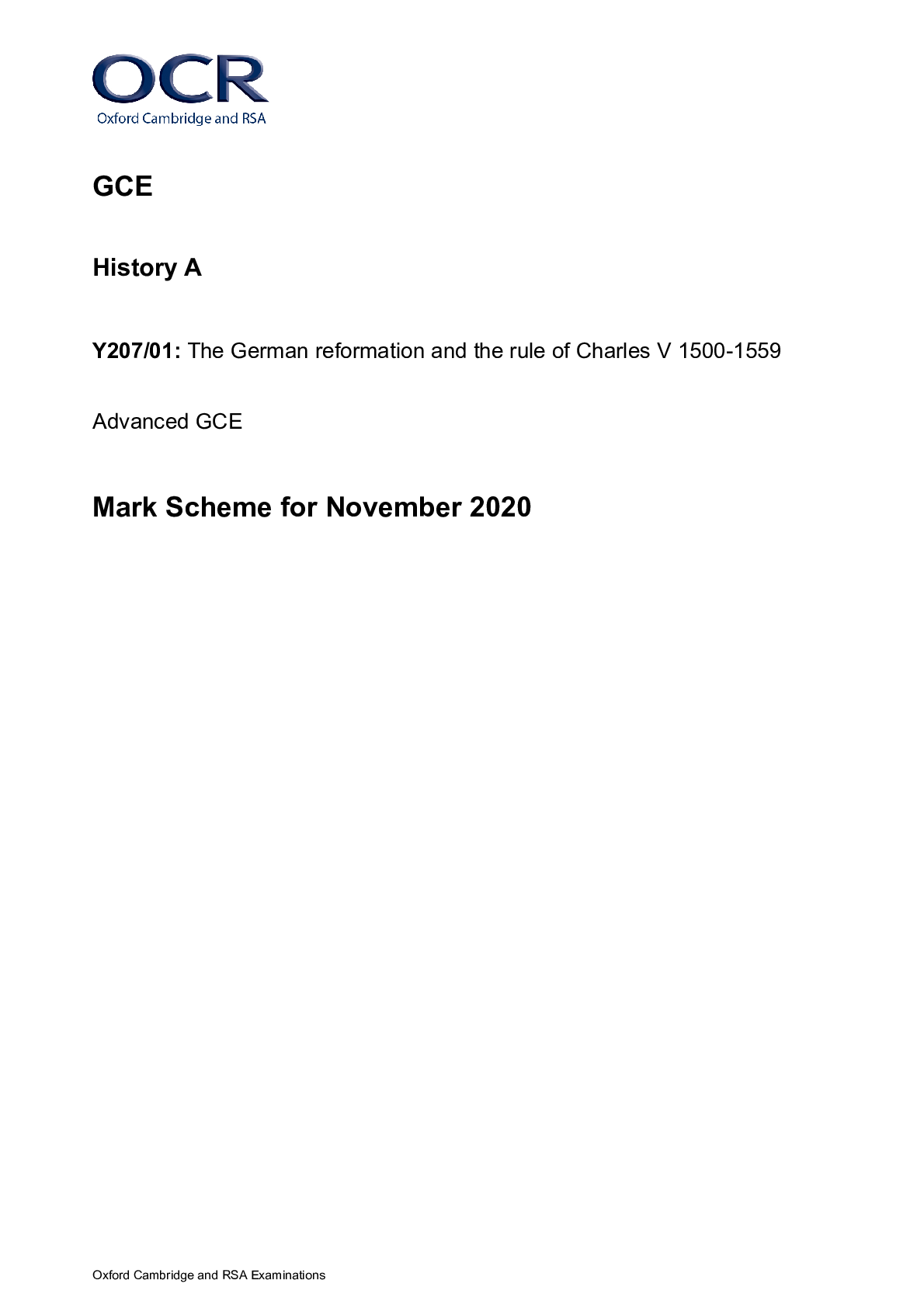
Reviews( 0 )
Document information
Connected school, study & course
About the document
Uploaded On
Oct 10, 2022
Number of pages
9
Written in
Additional information
This document has been written for:
Uploaded
Oct 10, 2022
Downloads
0
Views
35

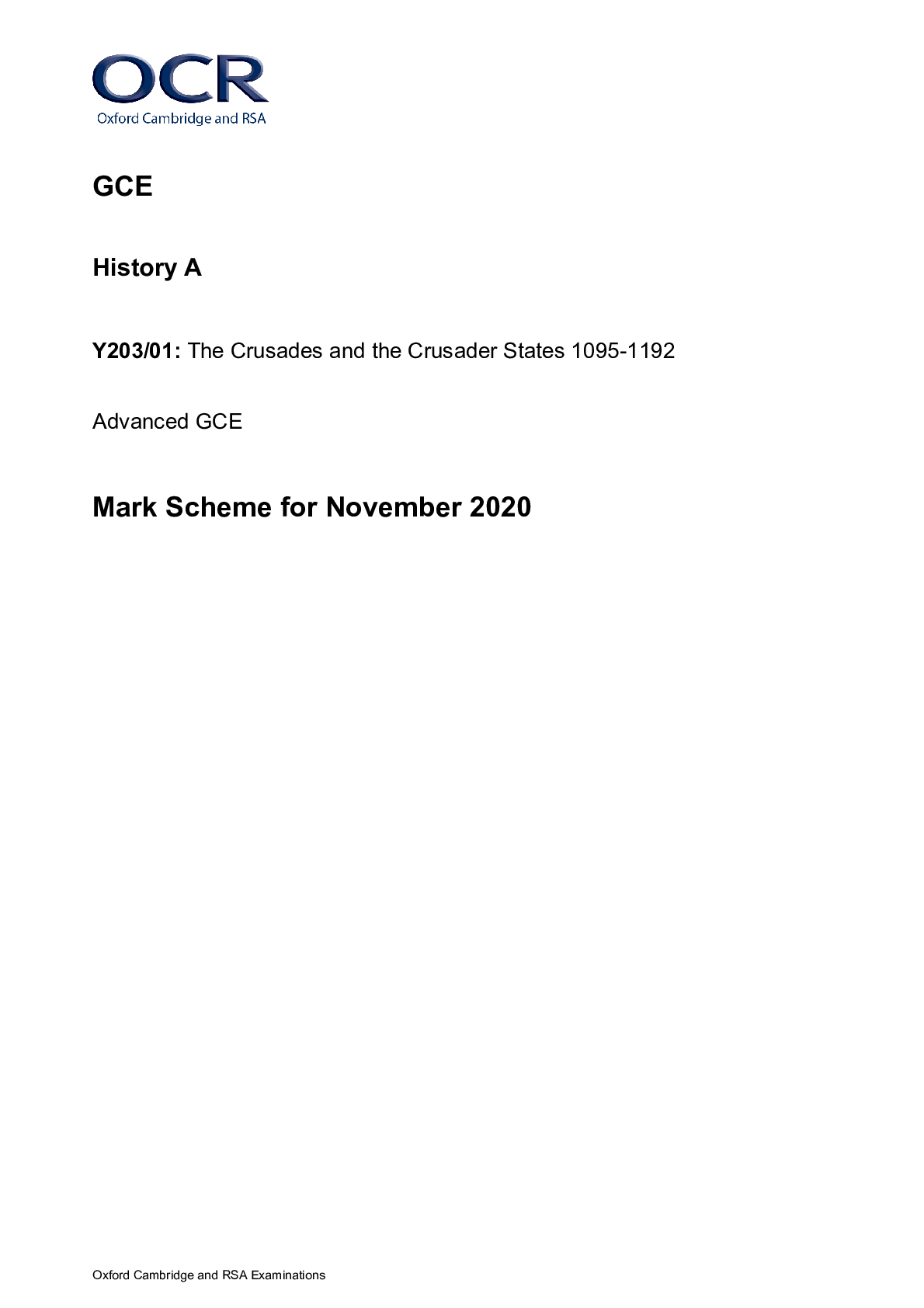


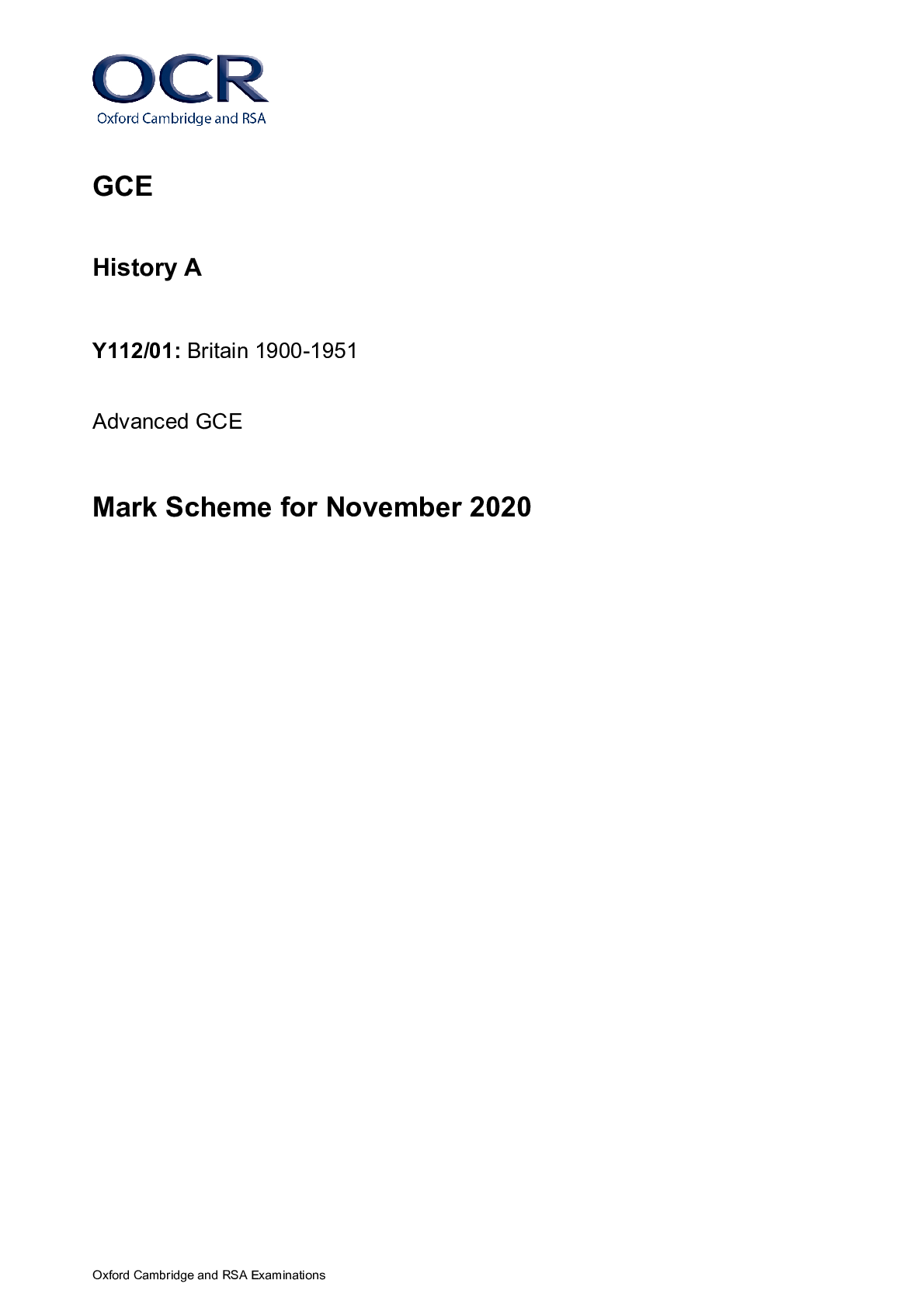
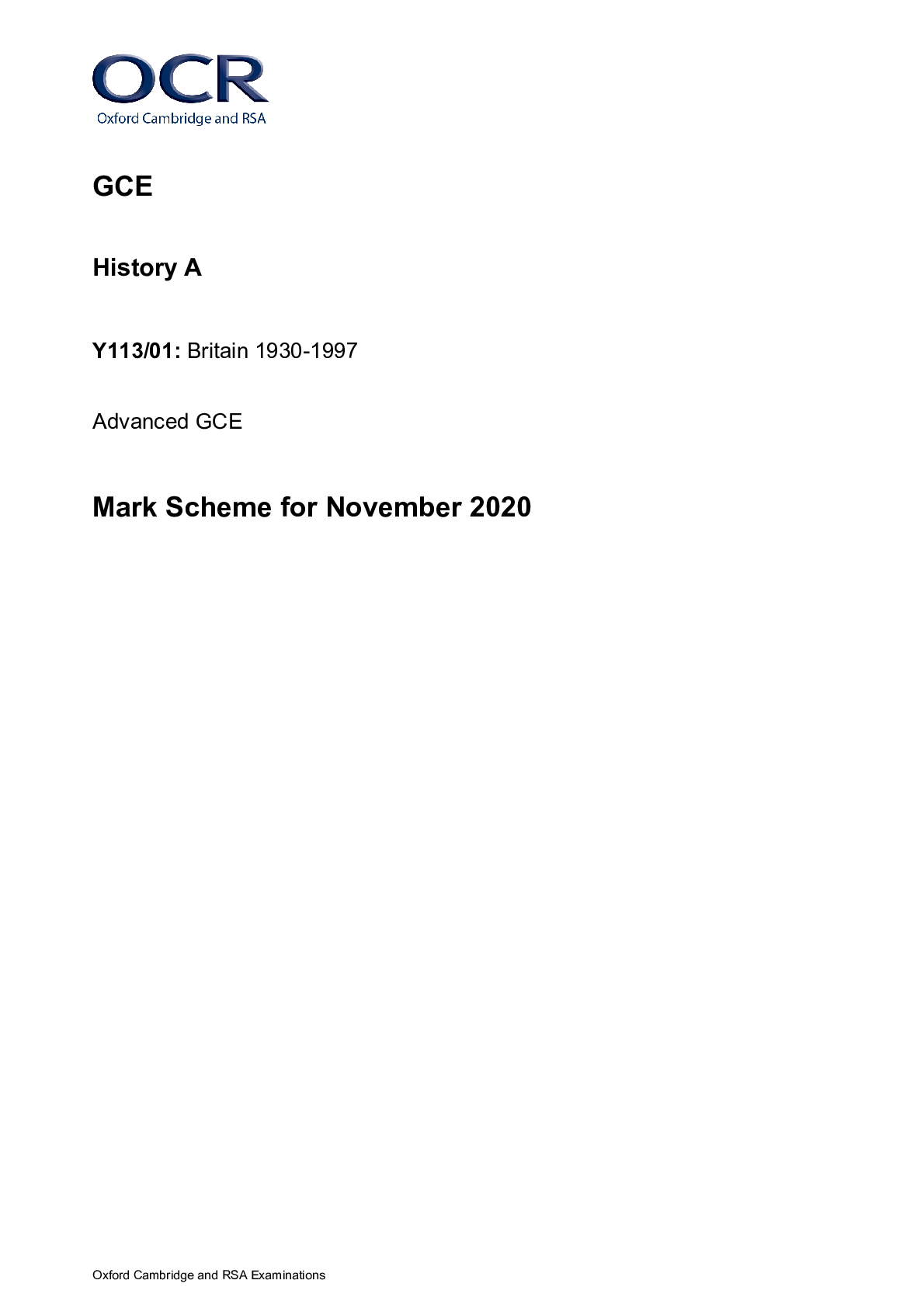
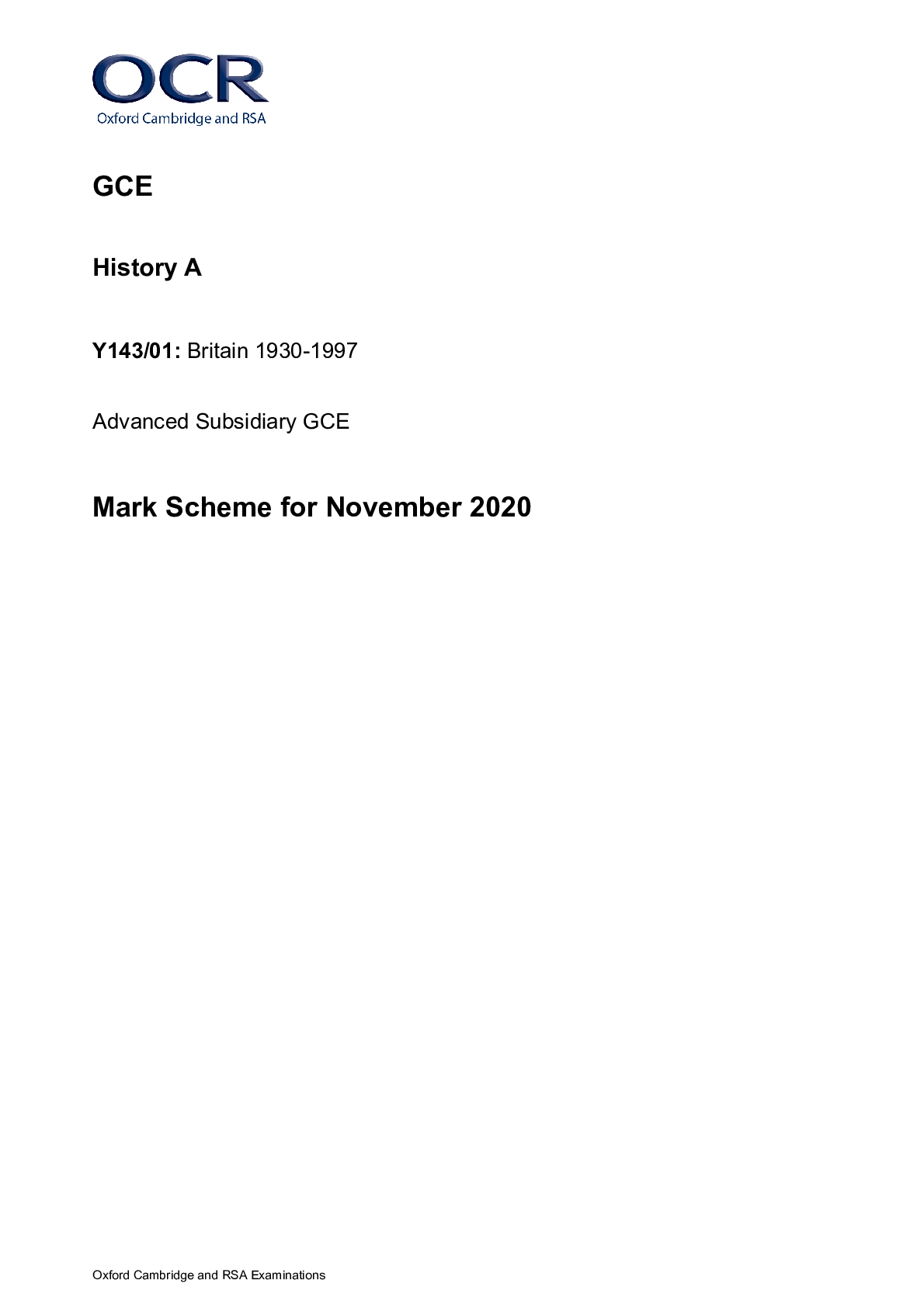
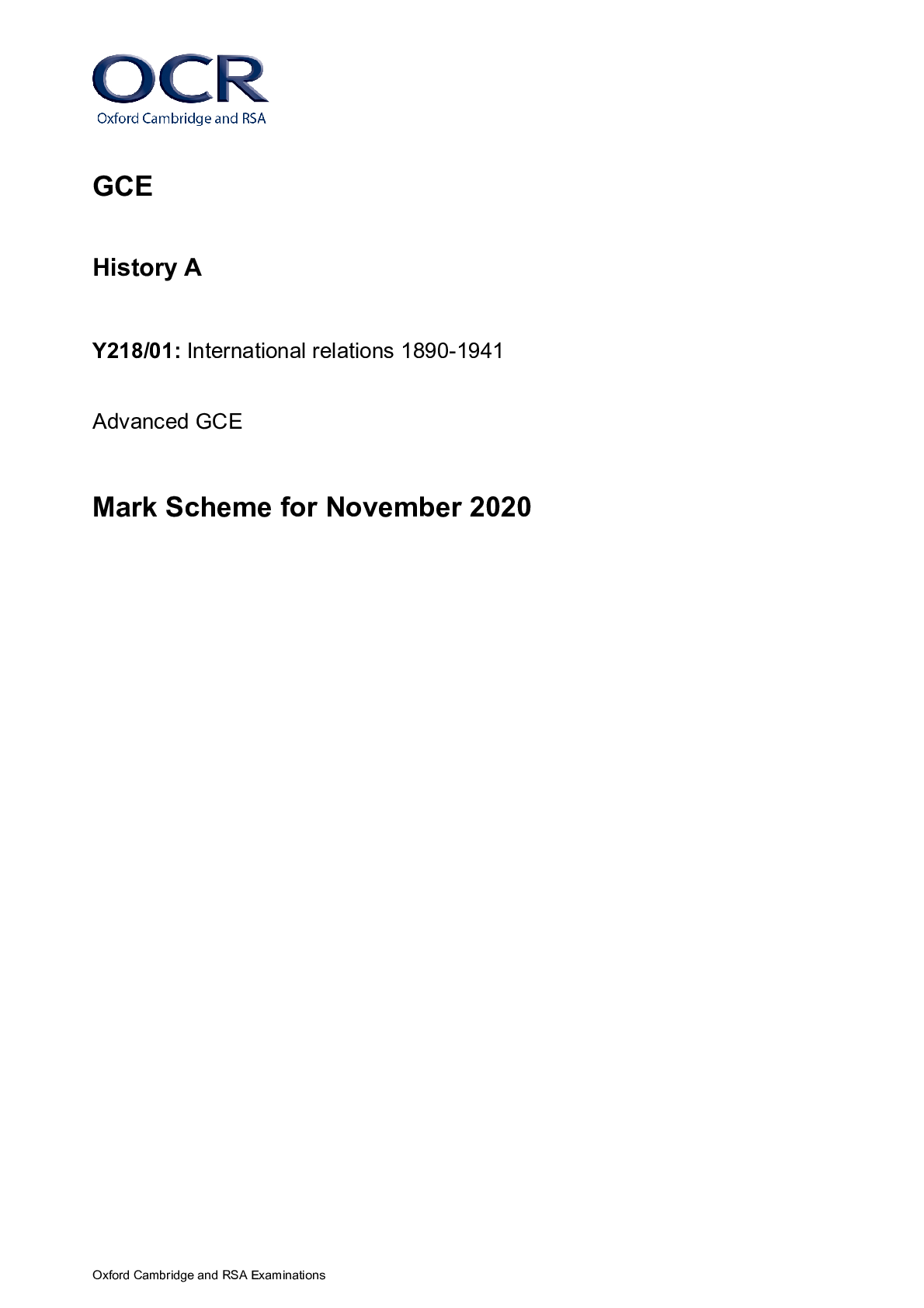
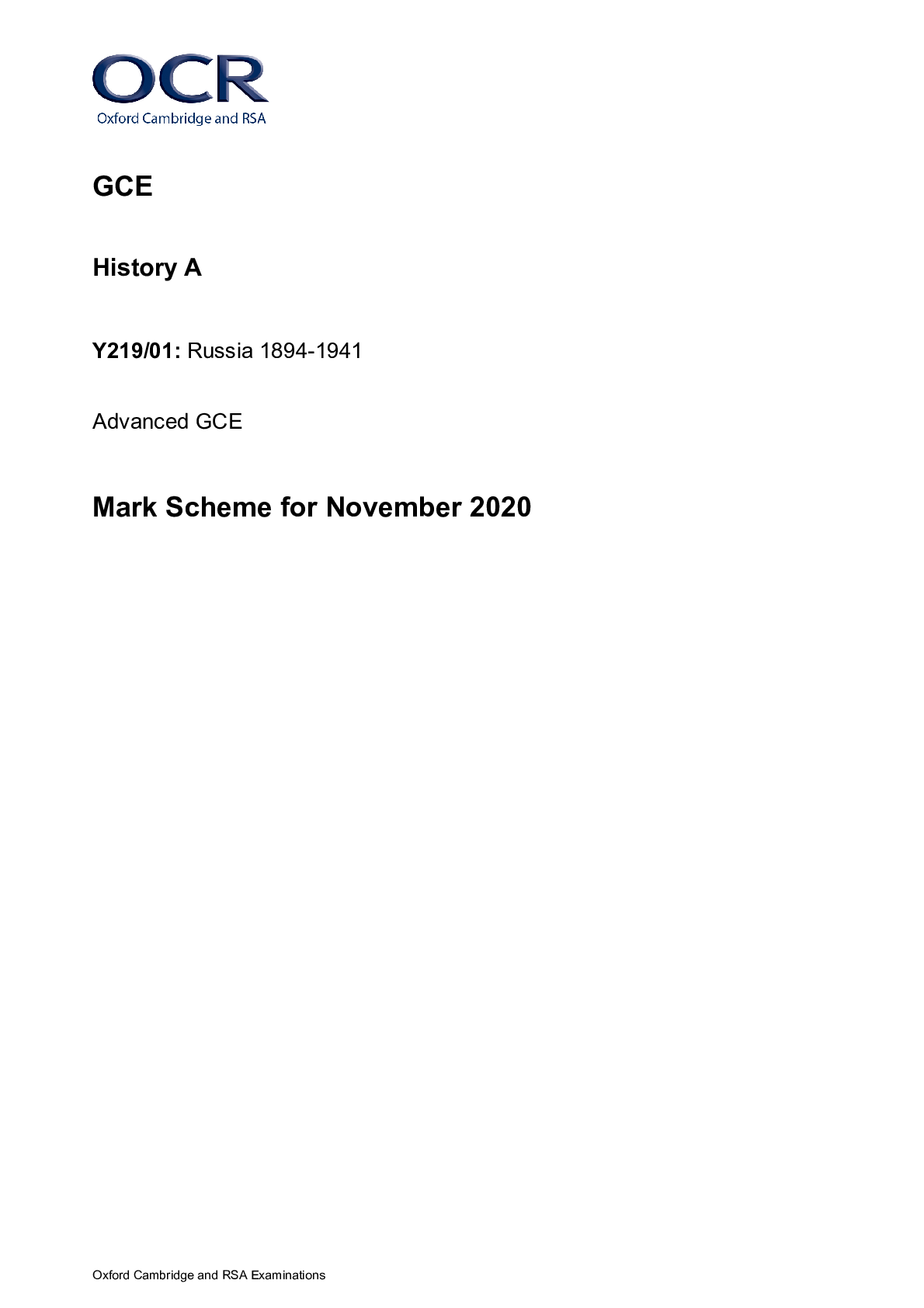
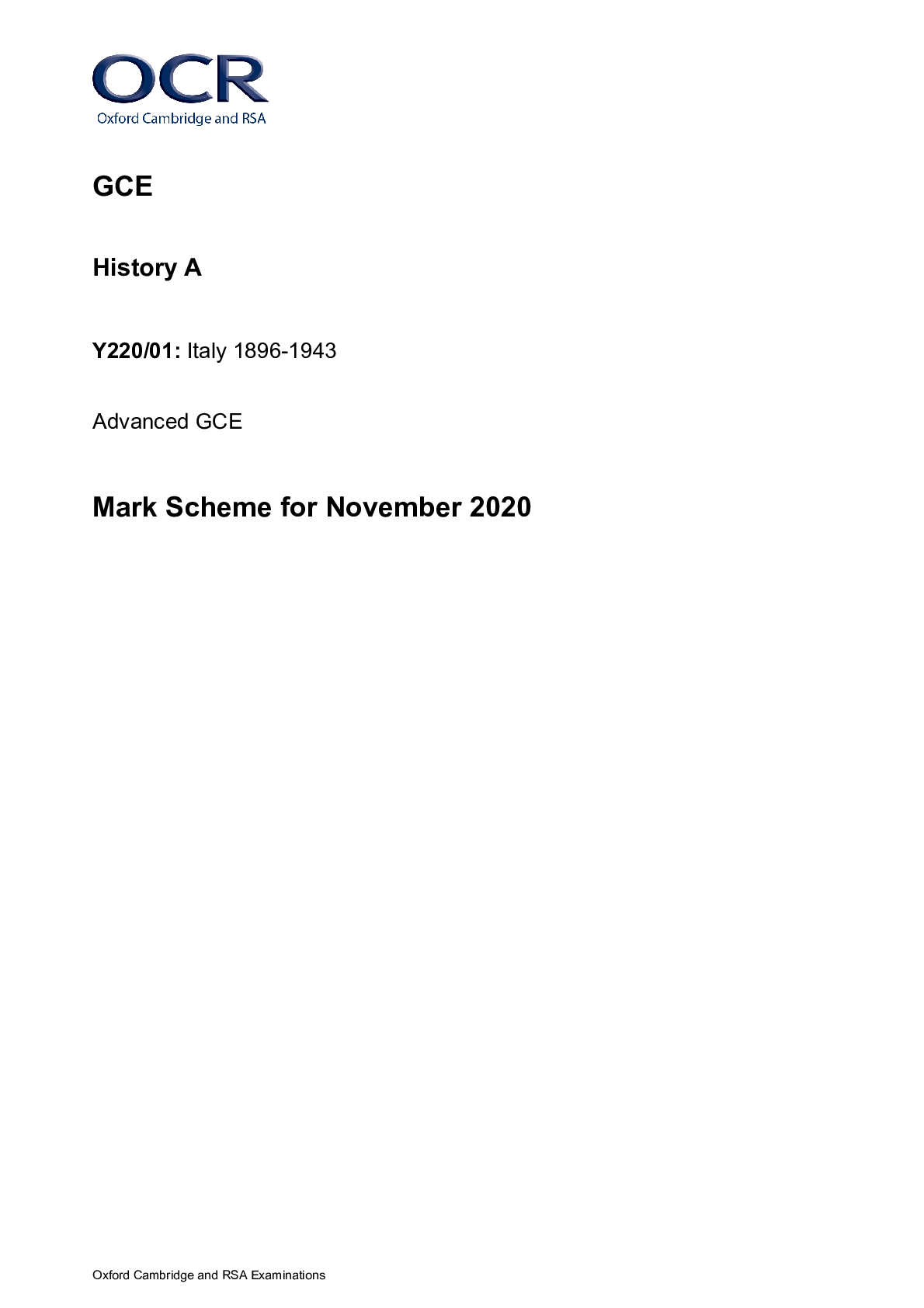
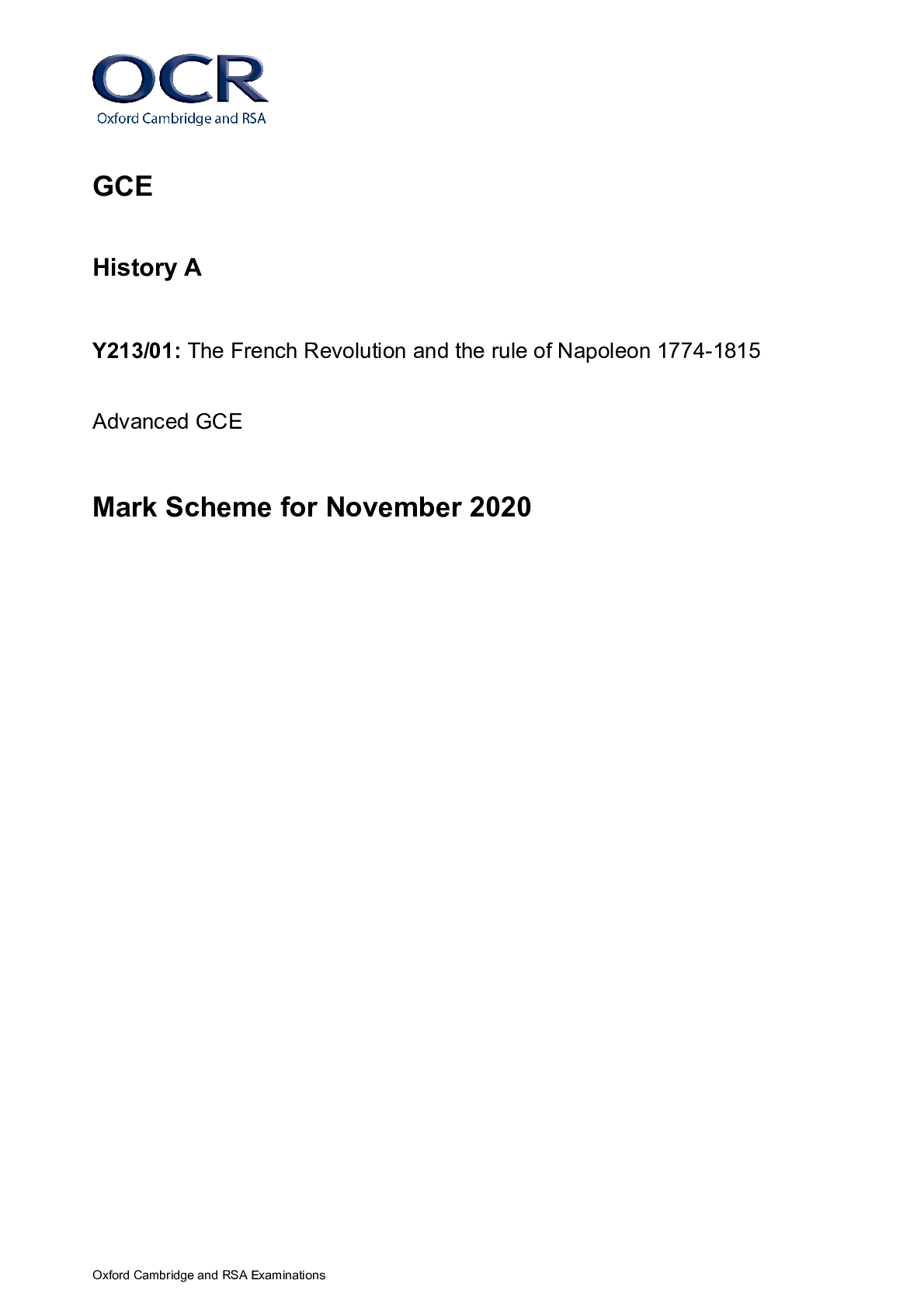
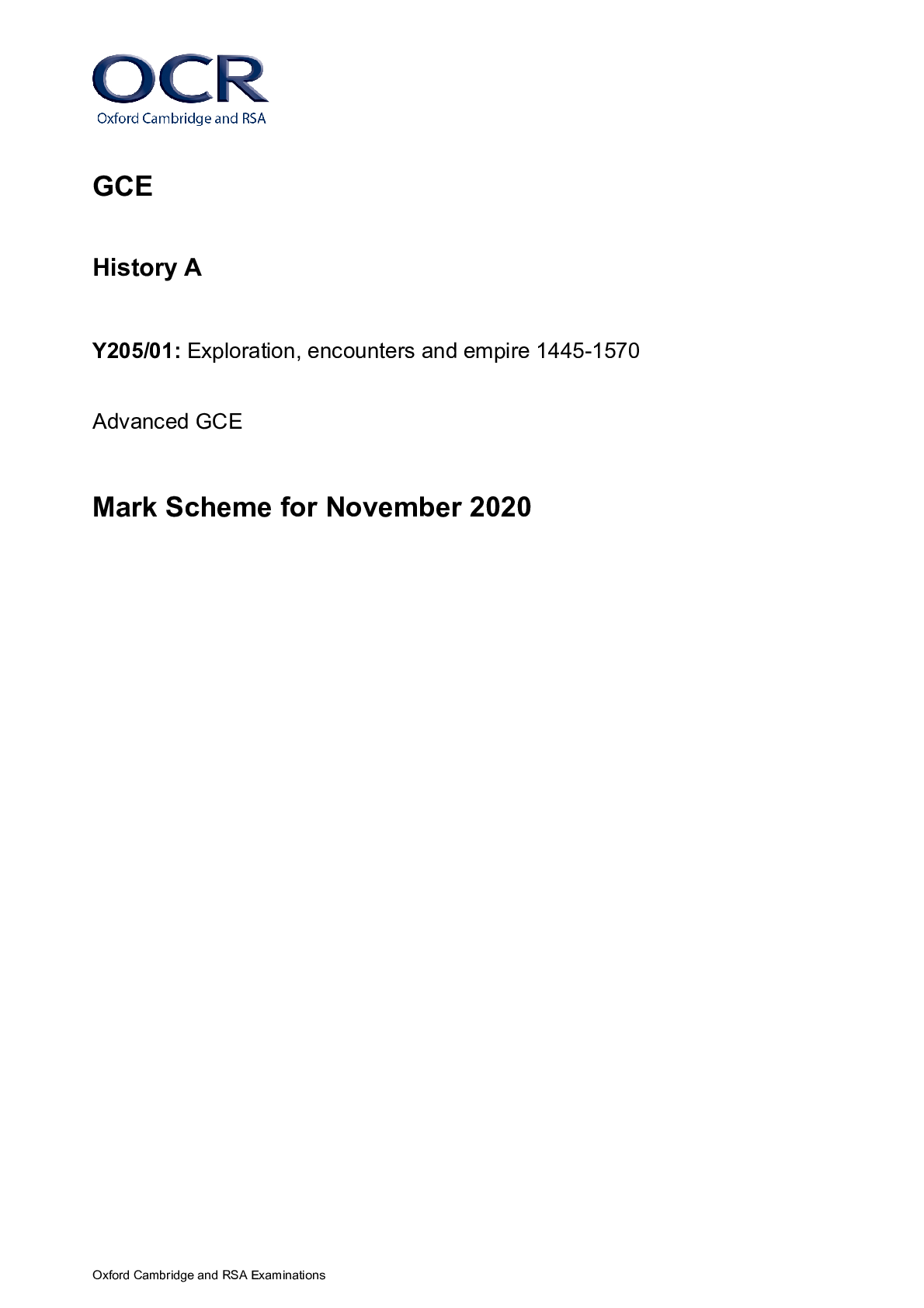
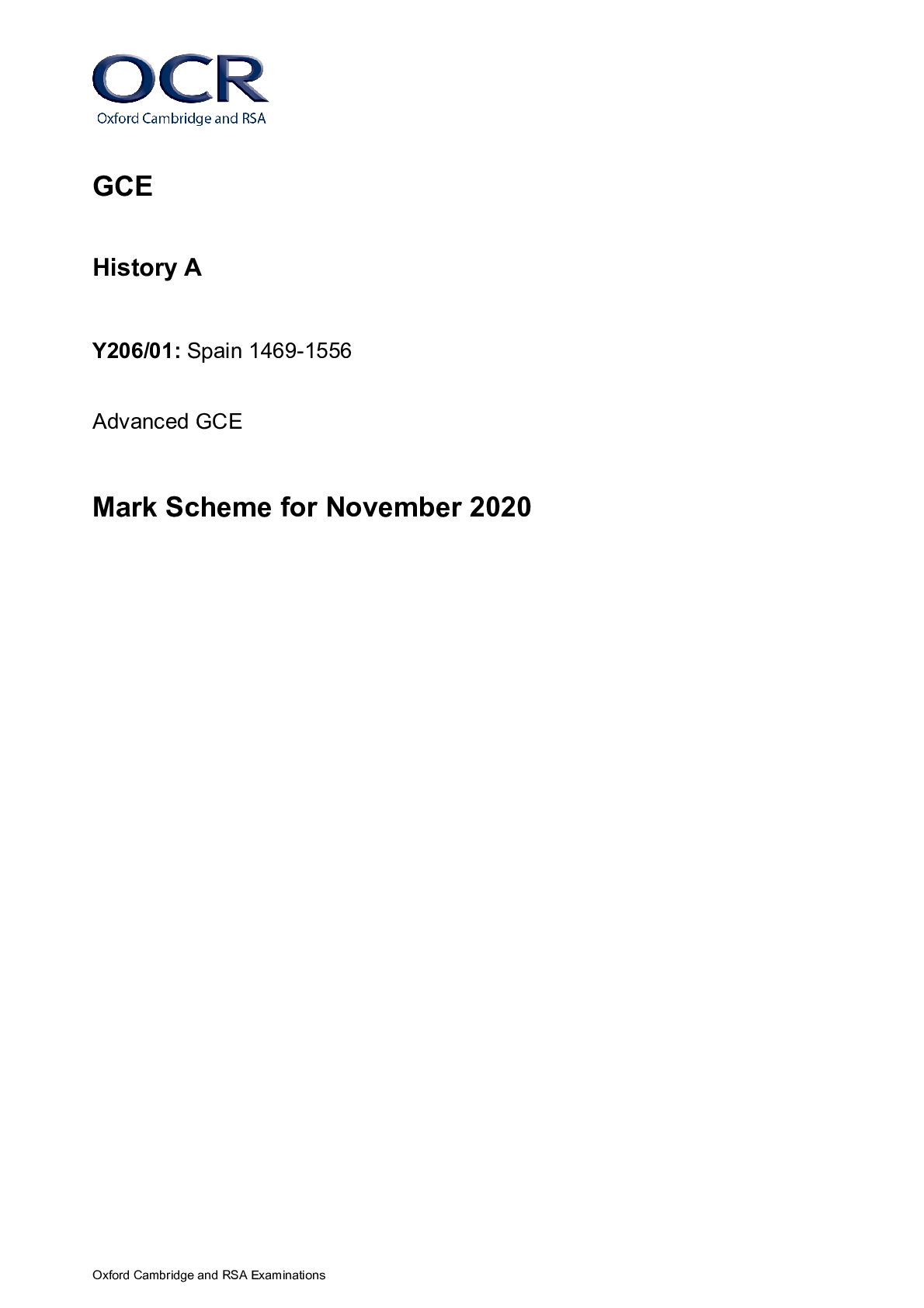
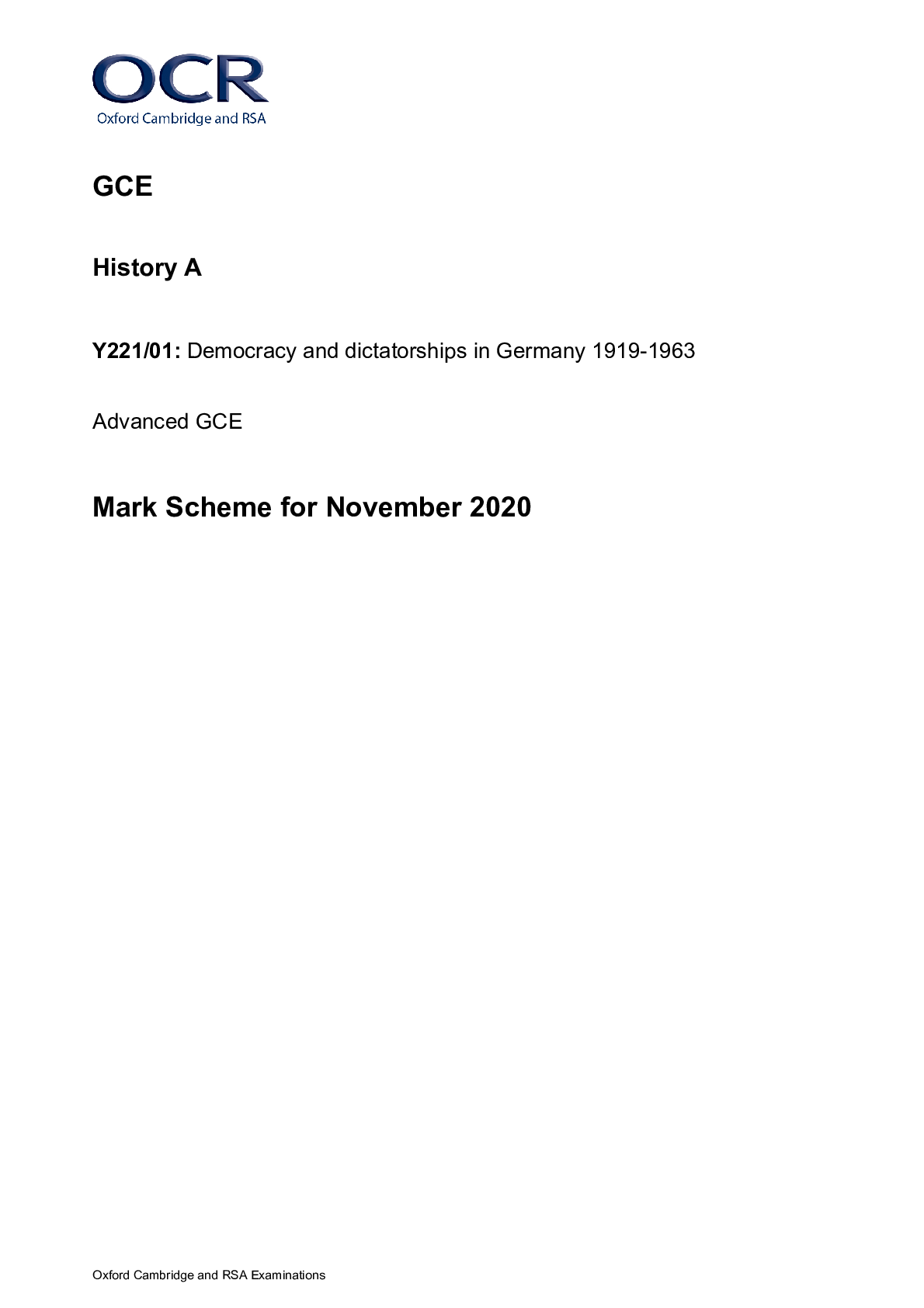
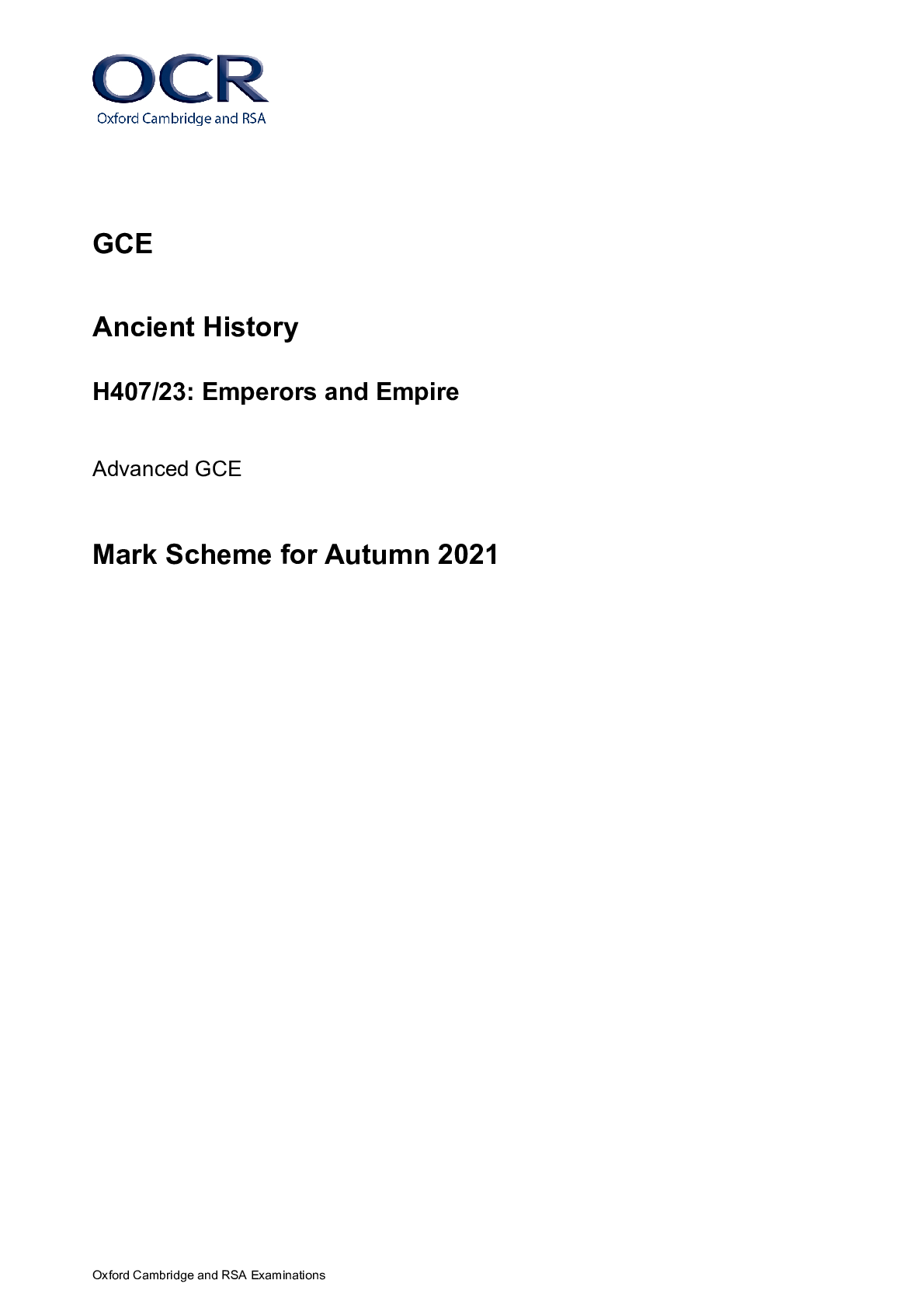
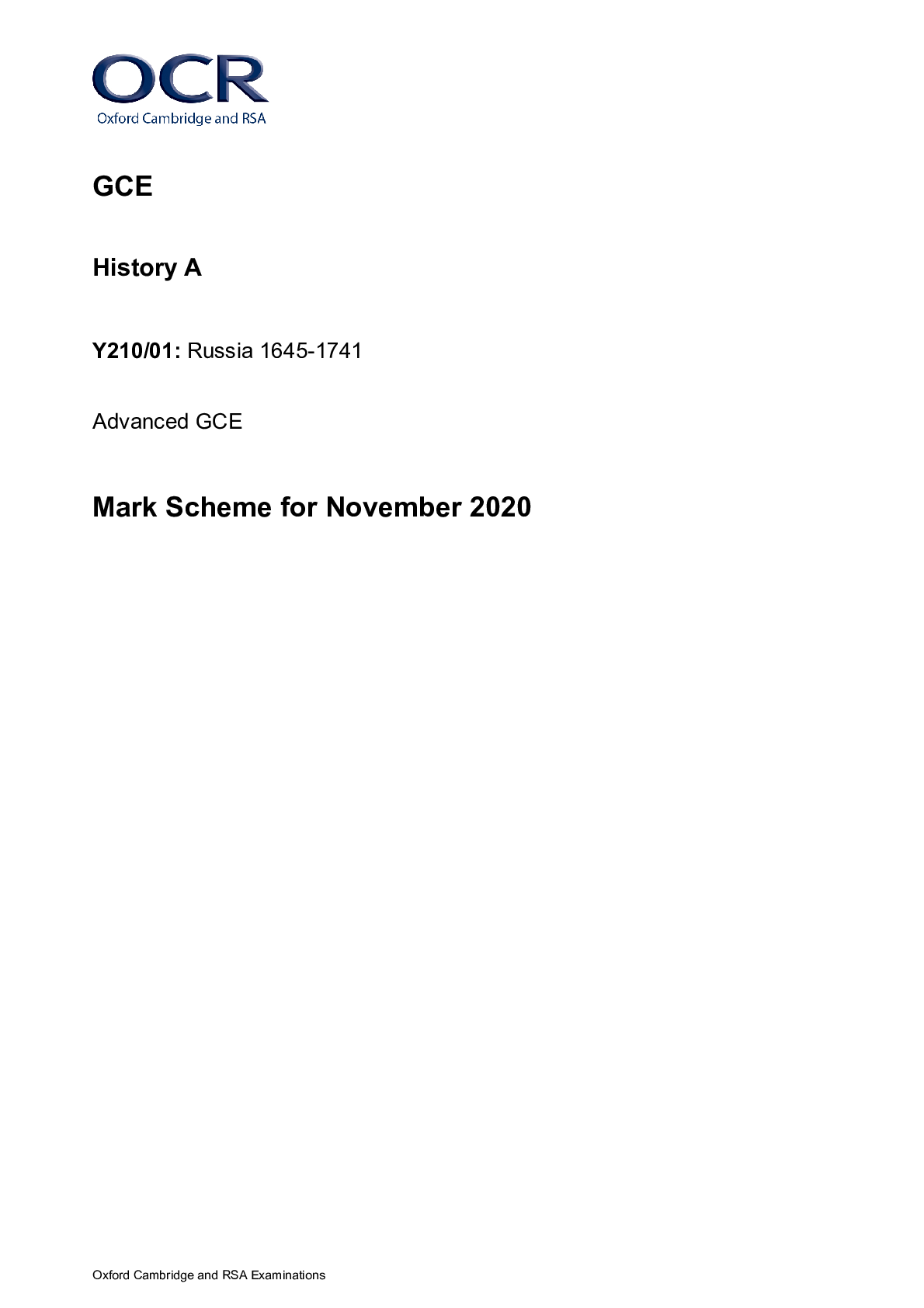
.png)

